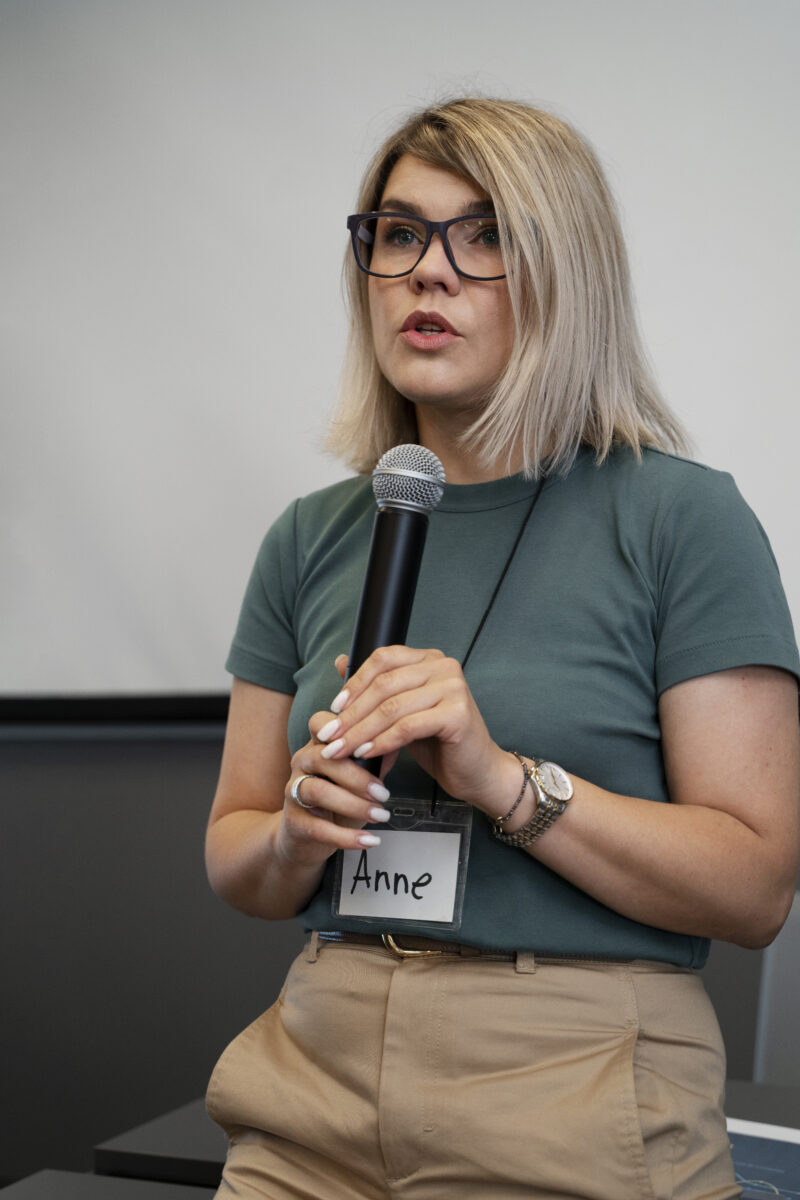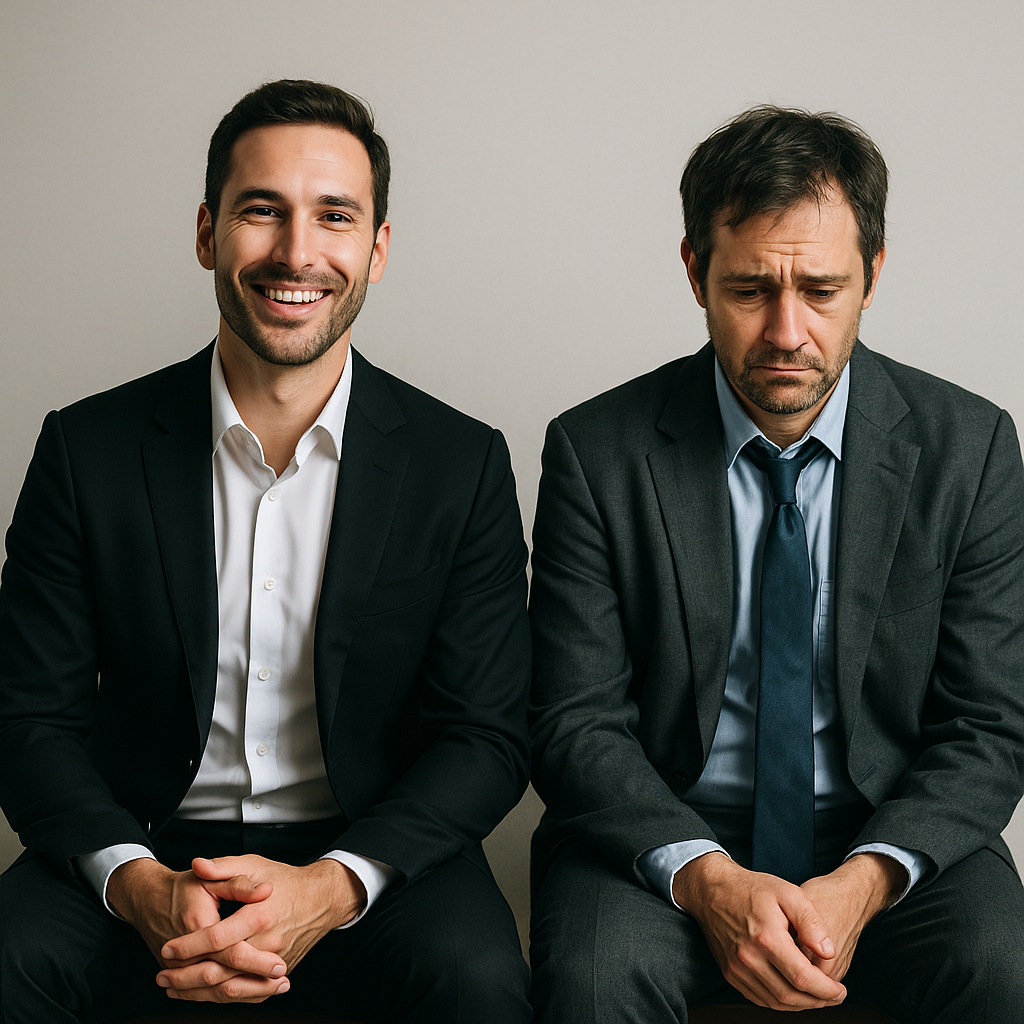The Mindset That Separates Those Who “Get Things Done”… from Those Who Change the Game

Today, success doesn’t belong to those who “do what they’re told,” but to those who act as owners of the outcome. That is the line that separates people operating on autopilot from those who generate real impact.
In a commercial or growth team, there are two types of people: those who “do what they were asked to do,” and those who behave as if the company’s P&L carried their name.
The first group is measured. The second group is sought after, promoted, and remembered.
This difference, subtle but transformative, can reshape careers, markets, and entire companies.
It has two names: accountability and ownership.
They’re more than concepts. They’re a way of operating.
A mindset.
A personal standard that determines whether your work pushes you toward your goals or simply keeps you busy.
In sales and growth, where metrics change fast, channels saturate, and the pressure for results is daily, adopting these two principles is not optional: it’s the only way to grow and remain truly relevant.
And why should this matter to you?
The market is more competitive, attention spans shorter, and customers more demanding. Companies aren’t looking for people who “perform tasks”; they want professionals capable of moving indicators, solving friction points, and turning uncertainty into concrete results.
Here’s the core idea: When a person adopts accountability and ownership, they stop executing instructions and start designing outcomes.
That shift skyrockets business performance, and accelerates career growth.
This mindset doesn’t just make you more valuable. It makes you an economic engine for your entire environment.

Accountability: the habit of taking responsibility for your results
Accountability is not blame, control, or unnecessary pressure.
It’s a declaration: “What happens with my numbers begins with me.”
It doesn’t matter if you’re an SDR, closer, traffic manager, growth lead, or CMO — everyone influences revenue, efficiency, or customer experience.
Accountability looks like this:
You don’t say: “The leads were cold.”
You say: “My conversion dropped; I identified patterns and here are three adjustments.”
You don’t say: “The campaign failed because the budget was too small.”
You say: “With this budget, this is the impact. Here are my hypotheses to improve.”
You don’t wait to be asked for reports.
You show up with interpreted data and a plan to optimize it.
When accountability is real:
- Conversations with your leader are strategic, not defensive.
- “I don’t know what happened” disappears.
- Metrics stop being excuses and become tools.
Ownership: the mental shift that activates your potential
If accountability is taking responsibility for results, ownership is feeling them as your own.
It’s the moment you stop seeing your role as a “position” and start seeing it as a “business within the business.”
Clear examples:
You don’t schedule demos — you build pipeline.
You don’t run ads — you develop a profitable LTV channel.
You don’t “attend customers” — you build relationships that generate repeat purchases and referrals.
You don’t just follow a process — you identify how to improve it and propose the change.
Ownership changes your questions:
From “What do I have to do today?”
to “What result am I going to produce today?”
From “What did another team do wrong?”
to “What can I adjust to make this work?”
When an entire team operates with ownership, it becomes unstoppable.
Friction drops. Egos quiet down. Velocity increases.
Of course you want to advance your career… right
Professionals with accountability and ownership have a clear pattern:
Where they go, things improve.
And leaders know it. That’s why they always open doors for these profiles.
This directly impacts your career goals:
- Want to lead a regional team?
→ They need to see you can “own” a result, not just execute tasks. - Want a senior role?
→ They need to see you interpret data, propose ideas, fix what’s broken, and bring others with you. - Want to become an entrepreneur one day?
→ Accountability and ownership are the foundation of the entrepreneurial muscle.
It’s simple: When you behave like an owner before becoming one, opportunities arrive before you even ask for them.
Your economic impact is real
Every optimization you make in sales or growth moves money.
That money sustains jobs, opens new markets, pays suppliers, and allows new products to be created.
Your work fuels an ecosystem. It’s not abstract — it’s real.
Improve your conversion → the company grows.
The company grows → opportunities increase.
Opportunities → more jobs, more investment, more impact, more prosperity.
When you operate with accountability and ownership, you multiply this cycle.
You don’t just improve your results — you increase the economic capacity of your entire environment.

Clear example: two professionals, same role, different destinies
Ana and Marcos have the same position.
Same tools.
Same leads.
Ana “completes tasks.”
“I messaged the client.”
“I updated the CRM when I could.”
“With these leads, there’s not much to do.”
Marcos operates with an owner mindset.
He takes responsibility for his demo rate, channel conversion, and weekly learning.
He proposes hypotheses, documents, adjusts, tests again.
One year later:
Ana did her job well… but it’s hard to tell a story about her impact.
Marcos has a clear portfolio:
“I took this channel, here’s the before and after, these were the decisions, here’s what I learned.”
Marcos gets promoted, recommended, sought after.
Ana remains “valuable”… but replaceable.
You’re wondering: How do I start?
Don’t ask your boss. Just ACT and get results that speak for you.
Define your three core metrics. Which result will you own, specifically?
Set a mandatory weekly review. What did you promise? What happened? What did you learn? What will you do differently?
Propose one funnel or process improvement this week. Don’t wait for permission to think better.
Speak in “owner mode.” Replace victim phrases with real responsibility.
Choose a 30-day personal challenge. One metric you will intentionally move with analysis and action.
I’ll leave you with this:
When you decide to operate like an owner, your job stops being just a job and becomes the vehicle that transforms your results, your career, and your life.